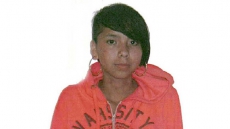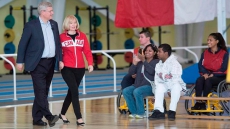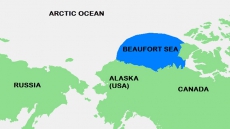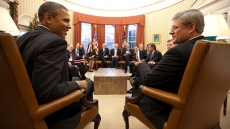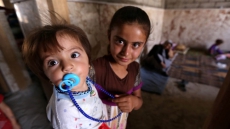KUWAIT CITY — Two Canadian CF-18 fighters conducted the country's first combat mission over Iraq, but bad weather west of Baghdad prevented them from striking any Islamic State targets, the task force commander said Friday.
A CP-140 Aurora conducted a surveillance mission over the northwestern part of the country at the same time. Canada's aircraft refueller was also in the air, topping off the fuel tanks of coalition aircraft.
The missions took place Thursday, but the military did not release details until the next day.
"They were prepared to do bombing," said Col. Daniel Constable, the commander of Joint Task Force Iraq.
"We had a combination of poor weather in the area where they were operating that affected us and they were in a mission area didn't develop into any targets. They didn't drop, but they could have."
The recent murders of two Canadian soldiers, including one at the foot of the National War Memorial that culminated in an attack on Parliament Hill last week, served to motivate the more than 600 personnel, underscoring the importance of what they were doing, he added.
"Having it hit home like that really affected us. It steeled our backs, just like it did to other Canadians," said Constable, a career fighter pilot, in a telephone interview. The Canadian military has not allowed media access to the airfields, citing the security concerns of their Kuwaiti hosts.
A total of six CF-18 jet fighters, two CP-140 Aurora surveillance planes and one C-150 refuelling jet are operating out of undisclosed airfields in Kuwait and will launch further missions in the coming days.
Whether they develop into actual bombing runs depends on a number of factors, including the ability of coalition spy planes and local forces on the ground to spot fighters from the Islamic State of Iraq and the Levant, as well as their command centres, vehicles and artillery.
Most of the enemy hardware is U.S-made equipment that was seized from fleeing Iraqi army forces earlier this summer.
The warplanes receive their strike orders and targets from the U.S.-led coalition and join aircraft from a number of different countries, including the U.S., Britain, Australia and several Gulf states.
A number of fresh reports are circulating that coalition jets could face an increased anti-aircraft threat from Islamic State fighters who are said to be armed with sophisticated shoulder-fired missiles.
U.S. officials, speaking on background to the New York Times earlier this week, described the appearance of the Chinese-made FN-6 heat-seeking missiles as "game changers." It is believed the weapons were originally provided to moderate Syrian rebels by Qatar and possibly Saudi Arabia, according to the report.
The missiles are a major threat to low-flying aircraft, such as attack helicopters. ISIL reportedly shot down an Iraqi Army Apache gunship using the weapons.
Prior to the beginning of the campaign, Canadian military commanders acknowledged the anti-aircraft threat, but noted that both the CF-18s and the Auroras can fly higher than the effective range of the missiles, known as Manpads.
A bigger concern, according to defence experts, is that Islamic State fighters might get their hands on an SA-24, the latest generation of Russia-made anti-aircraft weapons. The Iraqi government recently acquired such a system and those missiles have a longer range and the ability to manoeuvre in a more nimble fashion to avoid the counter-measures of their targets.
Threats are a "primary consideration" and something Canadian pilots are constantly assessing, Constable said.
"We take no chances and use defensive measures," he said. "We use our tactics, techniques and procedures. If you know where they are, you can avoid them — or potentially fly at an altitude above where they are capable of operating."
The Canadian contribution to the air campaign is mandated to last six months, but is likely to be extended.
The operations are being carried out under a blanket of secrecy as western bases, embassies and institutions throughout the Gulf region remains on heightened security alert for possible retaliation by Islamic State supporters.
George E. Irani, a professor at the American University of Kuwait, said the school circulated a memo on Wednesday warning of threats and urging vigilance.
Earlier this week, a jihadist website urged supporters to attack western schools, specifically teachers, but U.S. officials say no direct threat has been uncovered thus far.
